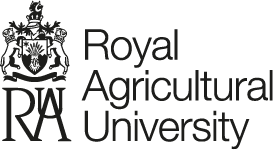How do natural resource dependent firms gain and lose a social licence?
Dumbrell, Nikki P, Adamson, David, Zuo, Alec and Wheeler, Sarah Ann (2021) How do natural resource dependent firms gain and lose a social licence? Global Environmental Change, 70 (102355). ISSN 1872-9495
|
Text
1-s2.0-S0959378021001345-main.pdf - Published Version Available under License Creative Commons Attribution Non-commercial No Derivatives. Download (596kB) | Preview |
Abstract
A project, firm or industry whose activities are accepted by communities and stakeholders is said to have a social licence to operate. The importance of a social licence is increasingly being realized in natural resource industries where a project or firm can impose more environmental and social costs, e.g. pollution, or strain on service delivery and housing, on communities than they are willing to accept. However, the conditions that are necessary and/or sufficient to obtain/maintain a social licence are unclear. To rectify this gap, a global literature review paired with a fuzzy-set qualitative comparative analysis of 47 natural resource case studies from 25 countries was used to identify the conditions necessary and/or sufficient to: (1) obtain or lose a social licence; (2) result in voluntary practice change by firms; and/or (3) create regulatory change. No single condition out of the ten conditions tested was found to be necessary to obtain or lose a social licence or to change firm behavior. However, a combination of five conditions created a robust pathway for maintaining a social licence, including: (1) delivery (or perception) of net economic benefits beyond the firm; (2) adequate stakeholder consultation; (3) minimal media coverage; (4) minimal public protests; and/or (5) absence of well-defined and enforced private property rights. These results contribute to an understanding of the somewhat limited effectiveness of social licence as a form of governance, and suggest that social licence outcomes are determined by the expectations of stakeholders, decisions and behaviors of firms, and broader institutional governance factors.
| Item Type: | Article |
|---|---|
| Keywords: | Qualitative comparative analysis (QCA) Case study analysis Net benefit Firm behavior change Social licence to operate |
| Divisions: | Agriculture, Science and Practice |
| Depositing User: | Dr David Adamson |
| Date Deposited: | 24 Oct 2024 18:36 |
| Last Modified: | 24 Oct 2024 18:36 |
| URI: | https://rau.repository.guildhe.ac.uk/id/eprint/16794 |
Actions (login required)
 |
Edit Item |

